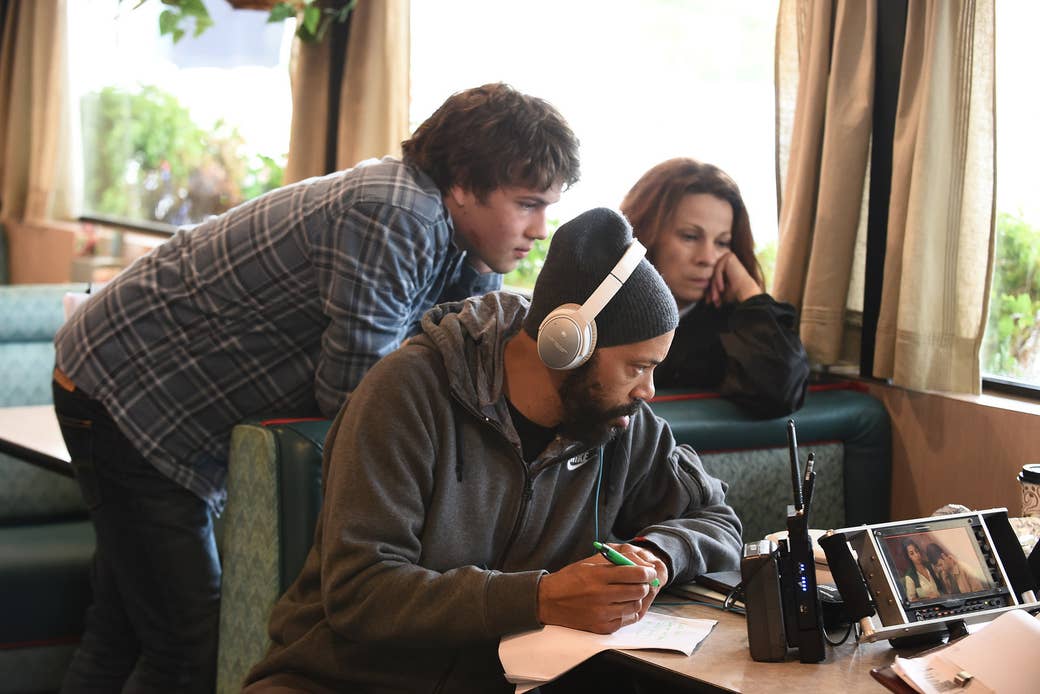
There is nothing on television quite like American Crime.
In the current second season of the ABC drama, viewers have been gripped by a scandal in an Indiana community after one closeted high school student accuses another of rape.
“Boys don’t get raped,” Regina King’s character, Terri LaCroix, says.
But of course, that’s not true, and American Crime has been shattering those kind of outdated myths about sexual assault as Taylor Blaine (Connor Jessup) and Eric Tanner (Joey Pollari) have become embroiled in a battle that has taken over their small town.
Season 1 of creator John Ridley’s anthology series — which dealt with racism, drug addiction, and murder — received glowing reviews, and was nominated for 10 Emmys, one of which it won (Outstanding Supporting Actress in a Limited Series or a Movie for King’s astounding performance).
For Season 2, Ridley doubled-down on what made his critical darling so successful: socially relevant themes, no holds barred writing, groundbreaking direction, and bold editing choices. “We've seen all kinds of shows go into a second season and sometimes they're not as good,” Ridley told BuzzFeed News during a phone interview. “It's incumbent on the people involved to learn from everything we did … and improve.”

The sophomore season of American Crime shifts the focus from Modesto, California, to Indianapolis, Indiana — specifically a private school, run with a steely ferocity by Felicity Huffman’s Leslie Graham. One of its students, Taylor — who attends the prestigious Leyland School on scholarship — alleges that another student, Eric, drugged him at a party and raped him, but he doesn’t come forward at first. It’s only after scandalous photos from the evening in question begin circulating online and result in Taylor's expulsion from Leyland that his mother, Anne Blaine (a never better Lili Taylor), learns what her son says he experienced that night and reports the alleged crime to the police.
What unfolds is a powerful and rarely seen examination of what it’s like to be closeted in small-town America, the lengths the rich and powerful will go to protect themselves, and, eventually, a school shooting.
“Education, family, socioeconomic differences, sexual orientation, violence in our schools, cyberbullying— many of the themes that weave through the second season, everyone's had direct experience with those things,” Huffman told BuzzFeed News in a phone interview. “The first season, when you're dealing with drug dealers and murder, the majority has — hopefully — only heard about that intellectually or through the news. This one hits a little closer to our hearts.”
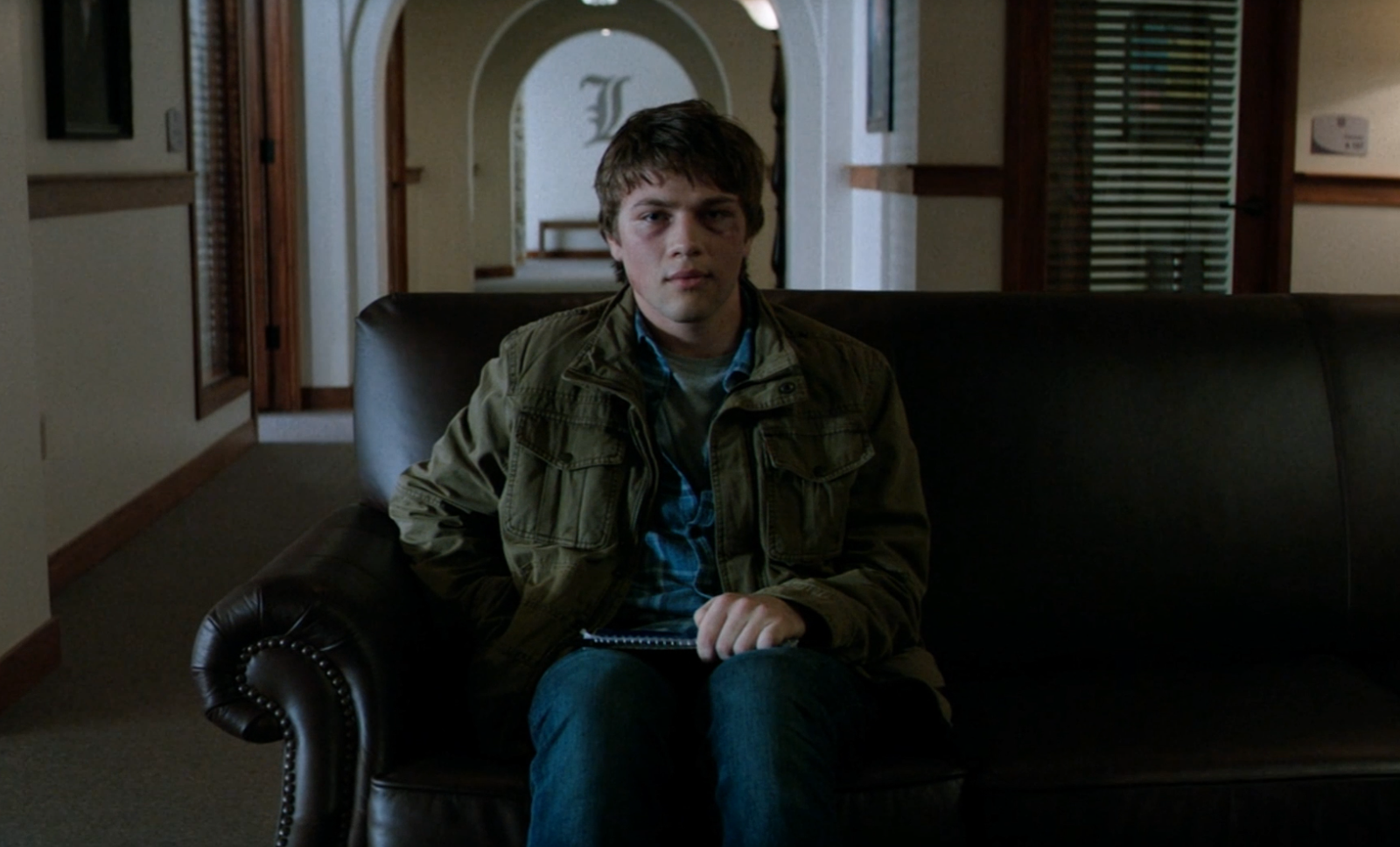
That’s particularly true of the season’s harrowing seventh episode in light of the 64 school shootings that occurred in the U.S. in 2015. In the installment, which aired on Feb. 17 and was written and directed by Ridley, Taylor hits a low after being physically and emotionally beaten down as a result of coming forward about the assault. He decides to steal a gun, down a bunch of drugs, and exact revenge on the people who scorned him: first Leslie, the headmaster of the school that turned his attack back on him; then Kevin LaCroix (Trevor Jackson), the basketball captain who hosted the party where he was allegedly assaulted; then Wes Baxter (Michael Seitz), the main aggressor in the group of students that gay-bashed him; and finally, of course, Eric.
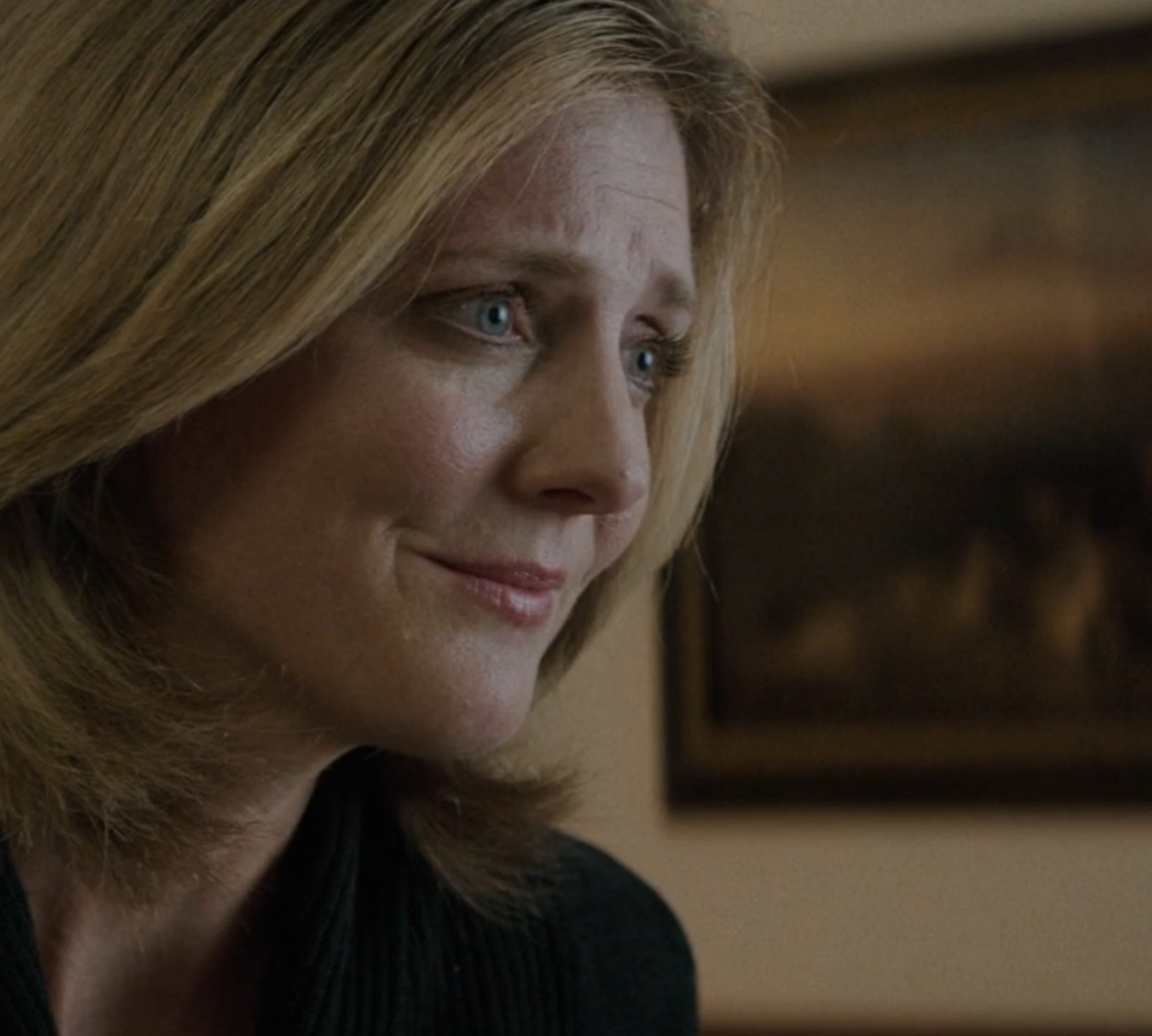
As Taylor waits outside Leslie’s office, gun cloaked, ready to avenge, a single voice sobers him up. “I thought the school could have handled your situation better,” Leslie’s assistant Grace (Merrilee McCommas) offers as tears begin to form in her eyes. “I see things here sometimes and I think you deserve better than how you were treated — a lot of us do.” It’s a moment of emotional solace that Taylor desperately needs: true compassion without any ulterior motive. And it reminds him that there are people who love and support him.
Taylor abandons the plan, but as he is exiting school property, he runs into Wes, who, assuming Taylor has reported the assault, grabs him and threatens to kill him. While the audience doesn’t see or hear the gunshot that follows, what they do see is a wave of disbelief ripple across Taylor’s face and Wes fall to the ground, blood rushing from a wound in his stomach that later kills him.
With that episode, American Crime did the seemingly unthinkable by asking viewers to sympathize with a school shooter. And thanks to one of the year’s best television performances, Jessup managed to earn that empathy.
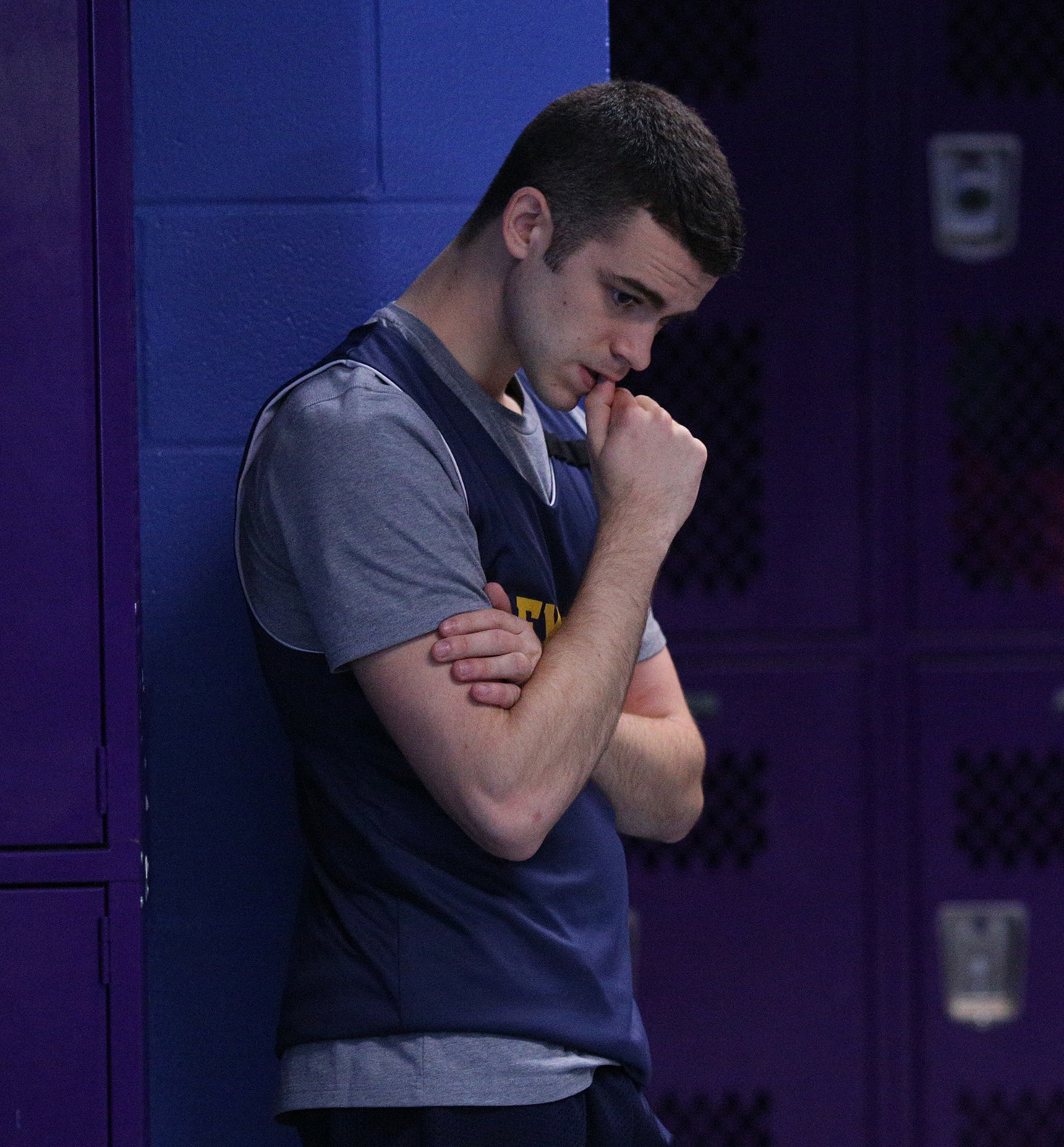
“What I was really worried about going into filming, and this is even before I knew what the season would be in its entirety, was that it would make Taylor feel like nothing but a victim in a very one-dimensional, flat way,” Jessup told BuzzFeed News in a phone interview. “It's almost like once you check the victim with a big ‘V’ box, you don't necessarily pay attention to them anymore because you just think, Oh, that character is nothing more than a victim. I think we're used to seeing victims on TV in a very Law and Order kind of way and it was really important to me that people not react to Taylor that way. And for the most part, that doesn’t seem to be people’s reaction.”
Jessup said he’s gotten letters from viewers who’ve appreciated seeing Taylor struggle and “not just have it be in the background or plot device for a single episode, but an actual examination of what it's like to be a victim of a crime like that.”
To Pollari’s surprise, the audience has been equally invested in Eric’s journey, despite the fact he is — at least at first — the accused perpetrator of a sexual assault. “I definitely thought the whole time he was going to be a completely unlikable character, but the show is so well-crafted that they do give you peeks into that heart he's trying so desperately to protect,” Pollari told BuzzFeed News during a phone interview. “People are very sympathetic and it just goes to show how movies and TV shows can open people's eyes to some much-needed understanding of difficult people in our lives. I don't think I understood the breadth of it until now.”

Bringing a series to television that feels fresh and bold, especially on network television, is a challenge, but American Crime has done just that. Ridley credits that success in large part to the show's diversity both in front of and behind the camera. Not only does the cast include black, Middle Eastern, and Latino actors, but women or people of color wrote more than half of the episodes in American Crime Season 2.
“The writers do so much more than just put pen to paper; they offer up moments from their lives — perspectives, things that happened to them, circumstances they've been through that just add a sheen of humanity to everything that's going on,” Ridley said. Additionally, women or people of color — including Boys Don’t Cry director and writer Kimberly Peirce and Mysterious Skin director Gregg Araki — directed more than half of this season’s episodes. “I say this with no disrespect to any other broadcast shows or network or cable, but in its inception, this was a show that wasn't being done,” Ridley said. “You don't see a lot of people of color in prominent roles, in complicated roles, and you certainly don't see enough behind the camera.”
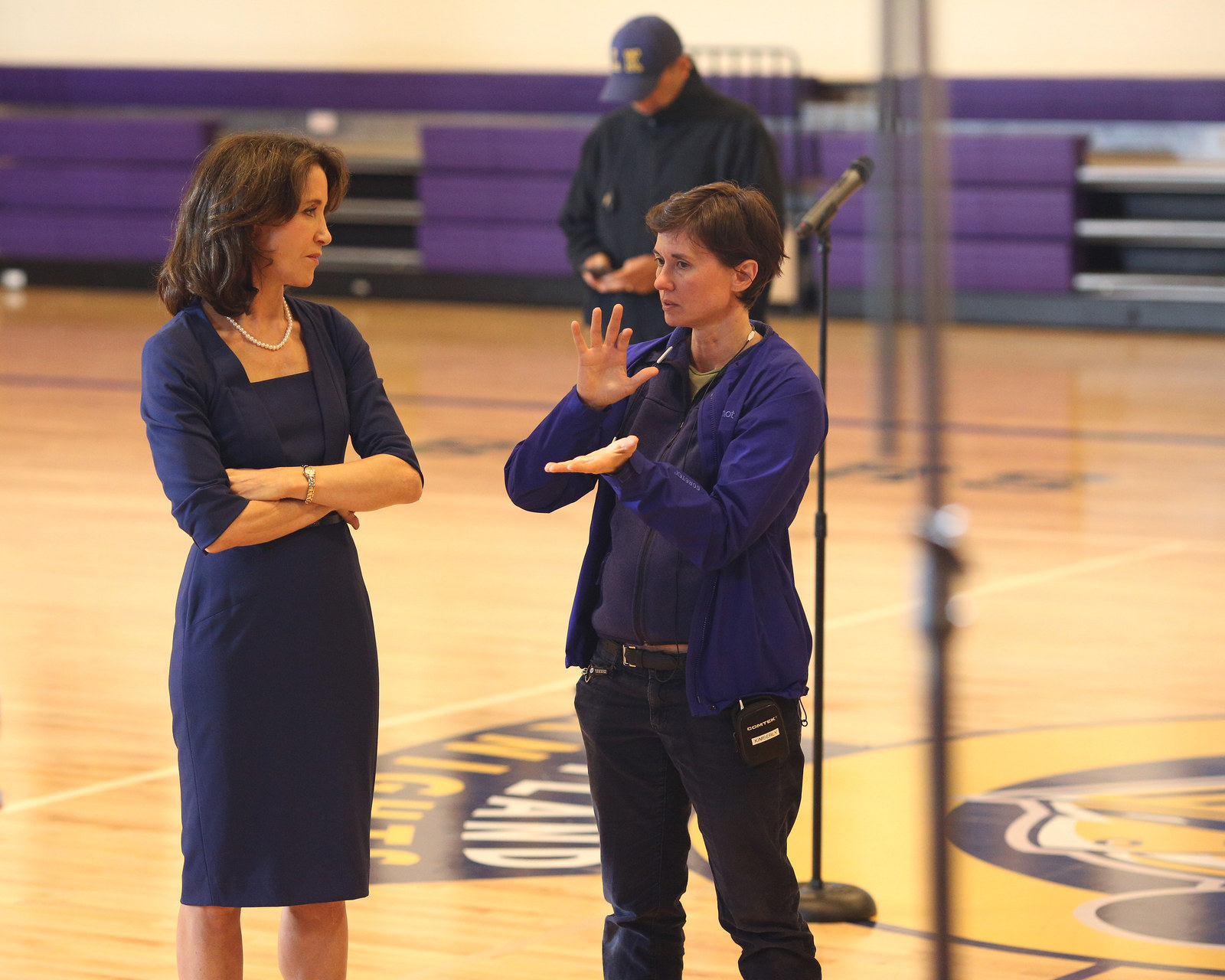
That diversity has helped American Crime stand out not only in the way it's tackled prescient themes head-on, but also in how those themes were presented.
Editing on the show, for example, is incredibly sparse. Every episode is dominated by lengthy, uninterrupted close-ups that linger on the actors’ faces, often while they’re not the ones speaking. So instead of using dialogue to tell the audience what a character is going through, their wordless reactions subtly send those messages. “Why cut from Lili for two minutes? Why cut from Connor Jessup in a scene? The minute you cut away, you dissipate what's going on,” Ridley said, praising American Crime’s editor, Hank Corwin (an Oscar nominee this year for his work on The Big Short), for that approach. "The only velocity is emotional velocity."
The show’s quest to honor the authenticity of every moment also manifests itself in its language. American Crime doesn't use an alternate word for a curse that would pass FCC standards or audibly bleep expletives; the show drops the audio and the video, resulting in a momentary blackout on screen. That choice was twofold: First, Ridley feels solely excising the sound in that moment can often feel like a mistake and he wanted it to be clear that these characters are not choosing their words based on broadcast standards; plus, it lends a power to the moment.
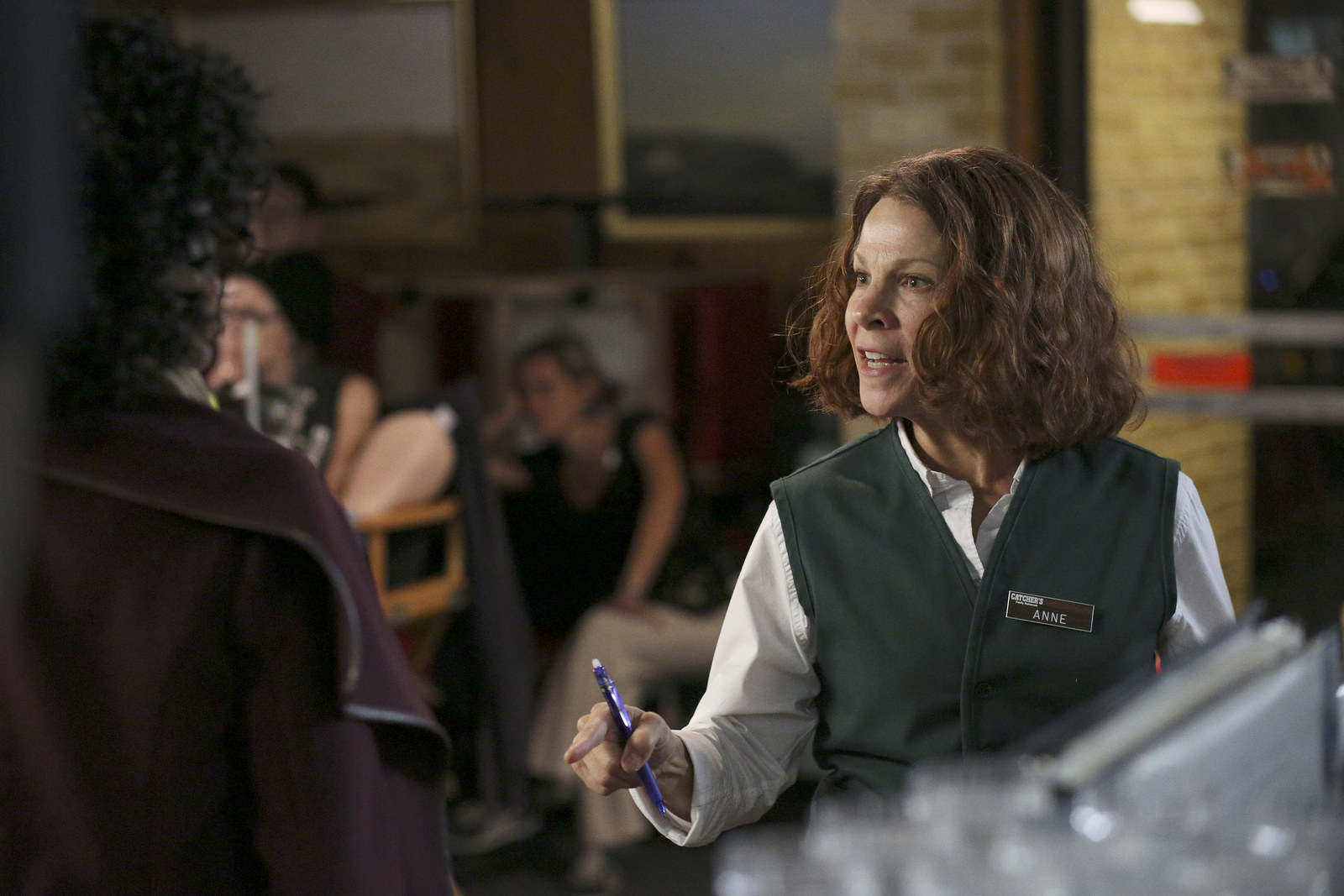
“To say to an actor, ‘We want you to have a really great windup in this moment, but when you get to this spot, we want you to say “fudge” or “shoot” instead,’ it’s like asking someone to throw a fastball at 32 miles per hour,” Ridley said. “We didn't want to dilute the run for performers. We didn't want to drop in a word that the audience would hear and think, They're supposed to be saying this word; that’s just a reminder to the audience that it's broadcast TV.”
Ridley was also able to mine genuine emotion from every word by only giving his actors the portions of the script in which their characters appear. “I really wanted some of the characters to not have any idea what's going on in other people's worlds,” he said. “There are moments where I think it throws actors off kilter in a good way.”
It also allowed the actors to focus on what their characters believe about the night in question. “I knew what was going on with Leslie Graham, but I didn't know what was going on with Connor's character or Richard Cabral's character,” Huffman said. “It was revelatory and new for me.”
And Ridley’s approach was particularly imperative for Jessup and Pollari. “I always told them, your truth is your truth. You're not going to find out later that ‘X’ happened, but you said ‘Y,’” he explained to the actors. “As the story went on, and as feelings and emotions calcify, as people become more segregated in who they are and the stance they take, for me, it just made more sense for the characters to have less sense of what's going on in someone else's world because they're not part of that world anymore.”
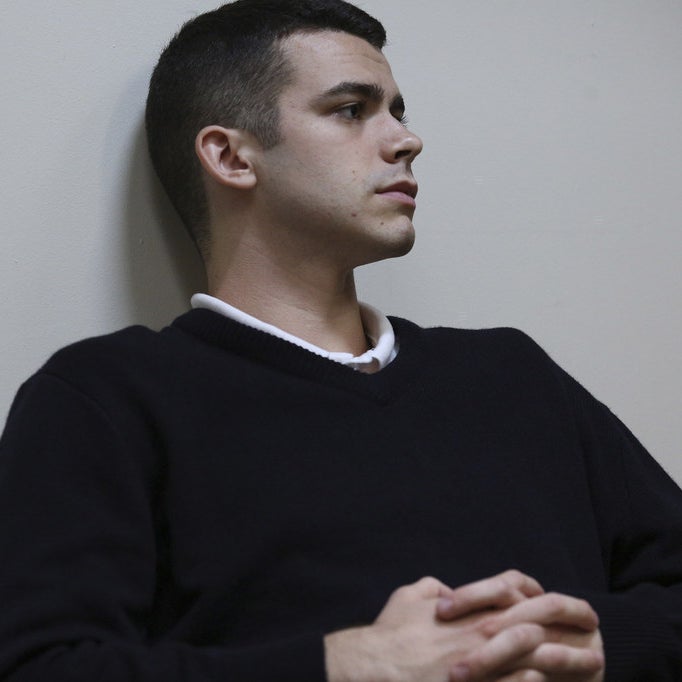
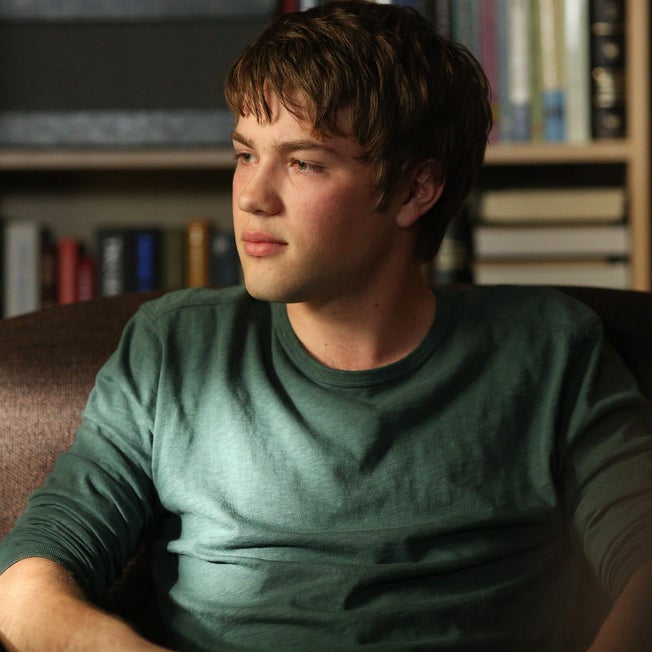
Conventional storytelling wisdom might lead audiences to expect a flashback to illuminate the “truth” of what happened that fateful night in the March 9 finale or some sort of revelatory resolution in the season’s closing moments. But American Crime is anything but conventional, and those looking for answers will be disappointed.
“I'm a huge fan of elliptical narratives where a character makes a journey but kind of ends up in a similar place to where they started,” Pollari said, implying Eric may still have some emotional growing to do. “Life is cyclical and we tend to go through things many times before we get ourselves out of it. It feels like the natural progression — especially for a show that prides itself in dealing with the gray.” Jessup, whose character has been to hell and back again, sees a silver lining in the finale’s shades of gray. “I might be alone in this, but I actually feel that it's a happy ending,” he said. “Not in the sense that all is right in the world ... but it presents a notion that is, in the long run, essentially a very optimistic one and I think it presents it in a very real way and a very unadorned way.”
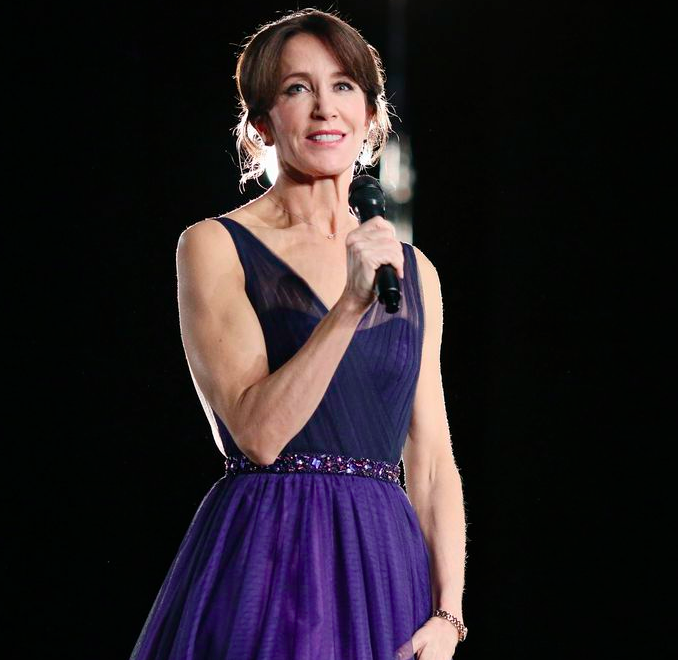
The actors on American Crime have grown accustomed to working in a world without answers, and viewers should be too because Ridley isn’t interested in resolution. “I don't think art is about answering questions; it's about posing them,” he said. “If you're watching the show, you don't need someone to come in and dust their hands at the end of 42 minutes and say, ‘Well, here's your answer.’ There's nothing but questions that need to be asked and with a show like this, one of the great things is we can ask, but I think we get into a danger zone where we start proselytizing and start writing these big, long summations about how we can be better citizens.”
Even if American Crime doesn’t provide answers, the cast hopes it ignites discussions about important topics that are often considered too taboo for primetime network television. And Huffman believes that alone has the potential to bring viewers closer to seeing even some of the most divisive issues from different perspectives.
“Storytelling, like any kind of art, has the innate ability to transform and to expand your experience,” Huffman said. “That brings understanding and usually what follows understanding is empathy. And when people have empathy for each other, the walls go down and we become more unified. Hopefully we are becoming more understanding and accepting. At least that's the goal.”
